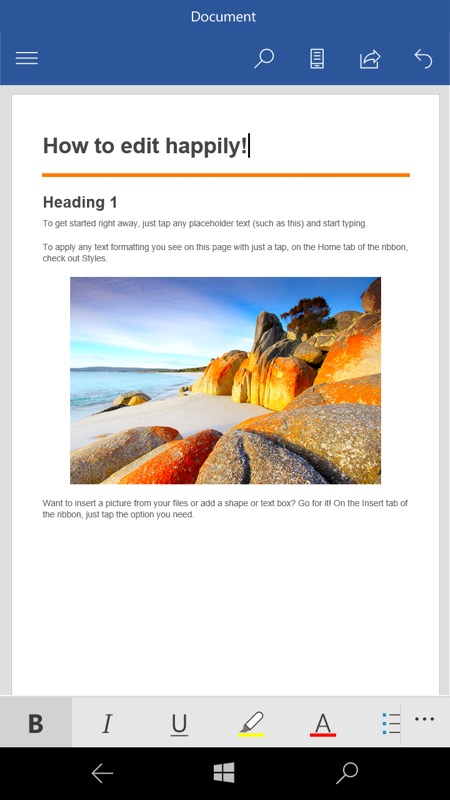From the NeoWin story:
Microsoft confirmed after a session today that it's focusing new features on iOS and Android, and the Windows 10 apps are considered to be legacy.
Microsoft's journey of Office apps on mobile began with the iPad in 2014 (before that it was a basic app simply called Office Mobile, rather than a suite of apps). It wasn't until Windows 10 launched in the next year that Office Mobile showed up on the firm's own platform.
While the suite of apps was primarily made for Windows phones, they were UWP apps, meaning that they could run on all Windows 10 devices. Windows phones really aren't a thing anymore, and neither are sub 10-inch Windows tablets, another market that was targeted by Office Mobile.
So it's no surprise that while the apps continue to exist for Windows phones, they're not actually getting new features anymore, and Microsoft has said so. At this point, Microsoft really wants users on iPhones or Android instead of Windows phones, and if you're running Windows 10 for PCs, you can use the desktop apps that are available from the Microsoft Store.
NeoWin comments that this means that Office Mobile UWP is 'dead', but - as usual - this is way overstating the case. The applications work fine, they're already fully featured, and they'll continue to work fine, used by many people, for years to come. I don't call that 'dead'.


However, the decision to stop adding features to the UWP applications does make sense from Microsoft's point of view, with Windows 10 Mobile use now waning - there's simply not much point in investing extra time on a codebase for which precisely zero people expect new 'stuff'. Heck, Word, Excel and Powerpoint Mobile all already do far more than I ever need on a Windows 10 phone.
Office Mobile's selling points were that it was UWP and thus could run on phone, tablet and Desktop, but with Windows phones sales being very low now and with generic Windows tablets being very low end, that really only leaves the Desktop, for which there's a more advanced Win32 build. The Surface Go is an interesting crossover device in that its screen size was 10" and thus Office Mobile could be used for free, i.e. with full editing, but many Surface Gos will be sold into education, it is hoped, for which the full Win32 Office is effectively free anyway. Plus for all devices with desktop-class web browsers, there's Office on the web anyway.
So yes, a sensible decision from Microsoft. Just don't believe the 'Office Mobile is dead' stories on other sites. It's as good today as it ever was, and the chances are that it will outlive other Microsoft and third party services on your phone!
